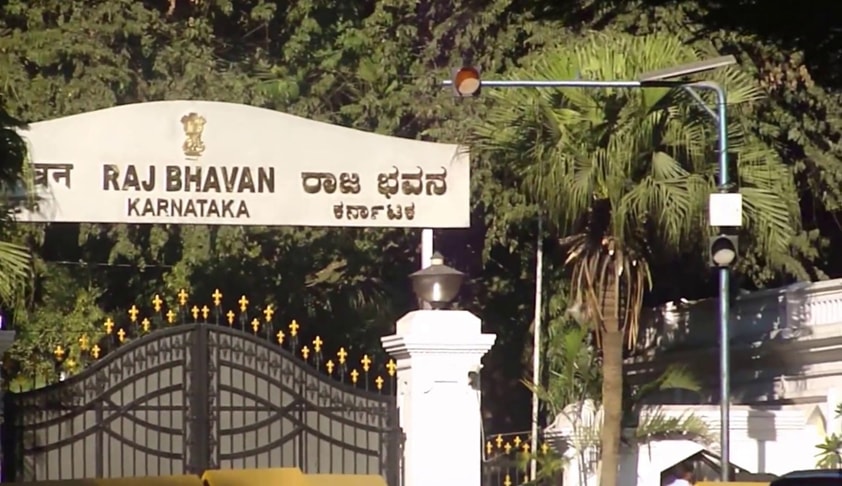Governor Or An Agent
Mohit Sharma
28 Jun 2018 8:46 PM IST

“A thousand years scarce serve to form a State; An hour may lay it in the dust.” - Lord Byron
It is being said that Justice must not only be done but must appear to be done. Like Justice, accord to the constitutionalism must not only be inculcated but also appear to be inculcated. Governor and the office of the Governor has a long history. We are a federal structure, Are we? Perhaps yes, barring the manipulations and manoeuvring by few whose eyes twinkle more than the twinkle twinkle little star.
History;
The office of the Governor under the Indian context is an appointed one and not an elected one like many or should I say the highest constitutional offices (barring the judges of the High Courts, the Supreme Court, the CAG etc.).
The reasons as given in (C.A.D., Vol. VII, p. 455.) are following;
- It would save the country from the evil consequences of still another election, run on personal issues.
- If the Governor were to be elected by direct vote, then he might consider himself to be superior to the Chief Minister.
- The method of the election would encourage separatist tendencies.
Arguments were also advanced in the Constituent Assembly, against nomination are also worthy of consideration:
- A nominated Governor would not be able to work for the welfare of a state because he would be a foreigner to that State and would not be able be understand its special needs.
- There was a chance of friction between the Governor and the Chief Minister of the State no less under the system of nominations if the Premier of the State did not belong to the same party as the nominated Governor.
- The method of appointment of the head of the State executive by the federal executive is repugnant to the strict federal system as it obtains in the U.S.A. and Australia.
If we look back and track the history, there did occur some friction between the Governor and the Chief Minister during 1987-89 in Andhra Pradesh and Kerala where they belonged to different political parties. But, strikingly, there was disagreement between the Governor Govind Narain Singh and the Chief Minister of Bihar (1985); and Governor Smt. Sarla Grewal and the Chief Minister of Madhya Pradesh (1989) even though hailing from the same party.
Constitutional Provisions;
Chapter II of part VI under Arts. 153, 154, 155, 156, 157, 158, 159, 160, 161 and 162 defines various roles and responsibilities of the Governor of the state.
Under Art. 155 President appoints Governor by warrant under his hand and seal. Interestingly, under Art. 156 (1), Governor holds his office during the pleasure of the President. President under the constitutional scheme, under Art. 74 act on the aid and advice of the council of ministers headed by the Prime Minister.
Under Art. 159, Governor takes an oath to preserve, protect and defend the Constitution.
In S.R. Chaudhari v. St. of Punjab (2001) 7 SCC 126, 146 (para 40), the Supreme Court observed that the Governors must remain conscious of their constitutional obligations and not sacrifice either political responsibility or parliamentary conventions on the altar of “political expediency.”
Immunity enjoyed by the Governor under Art. 361, certainly cannot be the basis to extend unconstitutional acts.
Ground Reality;
What we see now is just flabbergasting! Governors time and again have failed to fulfill their constitutional convictions and commitments. The role of the Governor has merely become of that of a henchman, who dance to the tunes of their political masters (it's an independent office though, on papers it seems). Its happening everywhere, first it has happened in Uttarakhand, then in Arunachal Pradesh and now in Karnataka. A mischievous Governor of one of the states in India has in fact gone to the extent of making the raj Bhawan a ladies club (a young ladies club). It does not end there, it just goes on and on. Lieutenant Governor of National Capital Territory of Delhi (Former) is not far behind.
Governor under Indian context under Art. 163 act on the aid and advice of the council of ministers.
Lieutenant Governor too, especially in case of NCT of Delhi under Art. 239 AA (4) act on the aid and advice of the council of ministers.
Whats’ the Way Forward:
The objective which is sought to be achieved is quite sanctified. But who is the conscience keeper! Individuals themselves have to be the conscience keepers. Under the Indian context, its apt to say that these posts are normally offered to those whose political carrier is either in crisis or who acts like pracharaks to the political fractions. Certainly, there has to be some checks and balances which needs to be put in place in order to correct the system, especially with regard to this important office. Constitutional commitment is to be embraced by the men in power, then only the democracy like India shall going to strive forward!
The author is an Advocate at the Supreme Court of India and presently a LLM candidate at the University of London.


